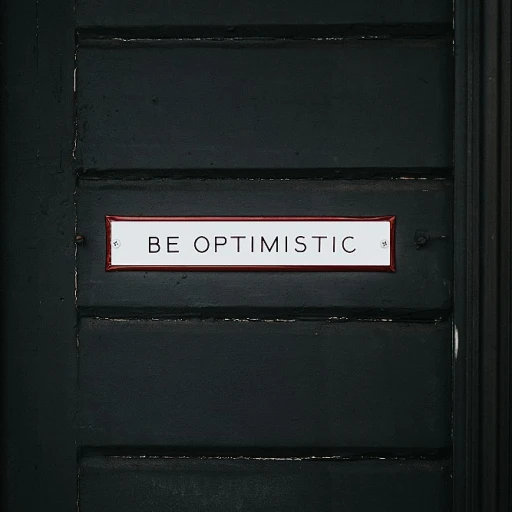
Understanding the Role of CRO in Organizations
A Glimpse into the Chief Revenue Officer's Contributions
In many companies today, the role of the Chief Revenue Officer (CRO) has become integral. Organizations are leaning more towards having a dedicated executive who is focused solely on the strategic drive for enhanced revenue generation and sales marketing. Essentially, the CRO is responsible for overseeing the entire revenue growth strategy, harmonizing both sales and marketing departments to ensure cohesive operational practices.
The role of a CRO is not just about managing sales but extends into developing customer success strategies, ensuring long-term business growth, and driving cross-functional leadership initiatives. The synergy among these departments under the leadership of a Chief Revenue Officer can significantly influence a company’s revenue trajectory.
Executive recruiters and search firms have a challenging but critical task—finding the right CROs who possess the right mix of skills and strategic vision to propel a business forward. The process of CRO recruitment involves understanding the unique revenue goals of a company and aligning them with a prospective candidate's ability to meet those objectives through a data-driven approach.
Given the complexity and multifaceted nature of the CRO role, businesses now often turn to specialized search services to navigate the executive search landscape. These services not only streamline the search process but also ensure that the recruitment strategy aligns with the organizational goals.
Challenges in CRO Executive Recruitment
The Complex Terrain of CRO Executive Search
When it comes to CRO executive recruitment, the process can often resemble a high stakes game of chess. The stakes are high, and the moves involved require calculated precision. Chief revenue officers (CROs) are essential to the revenue generation engine of any business, making them a crucial hire for sustained company growth and competitive advantage. However, recruiting these key executives is not without its challenges. CROs play a pivotal role in aligning sales, marketing, and customer success functions to drive revenue growth. This cross-functional leadership requires a unique skill set that encompasses both strategic vision and execution capability. As such, the search for the right CRO requires executive recruiters and search firms to thoroughly understand the company's specific needs in terms of leadership style, business model, and market dynamics. One of the primary challenges in CRO recruitment is the intensely competitive landscape. Organizations are increasingly on the hunt for data-driven leaders who can navigate complex markets and foster significant revenue growth. This means that the pool of ideal candidates is often limited, making it all the more challenging to find the right officer executive who can seamlessly integrate into the company's culture and drive strategies to fruition. Furthermore, search services tailored to executive roles must deal with the evolving demands of the market. Companies are looking for CROs with a track record of proven success in revenue generation and a keen understanding of sales marketing ecosystems. Potential candidates need to demonstrate leadership capabilities that not only meet the current needs of the business but align with long-term growth objectives as well. The high demand, coupled with the scarce availability of ready-to-hire talent, amplifies the complexity of the recruitment process. Companies investing in CRO recruitment must consider both the short-term and long-term impacts of their hiring decisions, ensuring they work with search firms skilled in identifying, engaging, and evaluating top executive talent. This intricate balance between recruitment needs and market dynamics highlights the necessity for a streamlined and positive candidate experience, setting the stage for seamless integration and immediate impact. For more insights into how candidate experiences can be tailored to fit diverse job markets, including the unique challenges of urban and rural settings, you might want to explore further.The Importance of a Positive Candidate Experience
Crafting a Memorable Candidate Journey
The significance of providing an exceptional candidate experience during the CRO executive recruitment process cannot be overstated. A positive journey not only reflects well on the company but also plays a crucial role in attracting top-tier talent to fill the vital Chief Revenue Officer role. Executing such searches, whether via a search firm or in-house recruiters, demands a focus on creating a seamless and respectful experience for candidates. Given the critical nature of CROs in steering revenue generation and growth, potential candidates need to feel valued and respected throughout the recruitment process. Here are some essential considerations:- Clear Communication: Strong communication from executive recruiters helps set the tone for the entire process. It’s essential to maintain transparency about the search timeline, expectations, and feedback mechanisms.
- Brand Image: The way a company handles its recruitment reflects on its brand. A professional, respectful process can boost a company's reputation in the competitive marketplace of executive search services, indirectly enhancing its sales marketing efforts.
- Timely Feedback: One of the common pain points for candidates is the waiting period post-interview. Providing timely and constructive feedback, even to those not selected, shows respect for their time and effort, enhancing overall candidate satisfaction. This aspect of customer success can have long-term benefits for the business.
- Personalization: Personalizing communication and interactions during the recruitment journey, recognizing the unique skills and experiences of CRO candidates, can leave a lasting, positive impression. Treating candidates as individuals rather than just numbers on a spreadsheet emphasizes the company’s values and cultural fit.
Strategies to Enhance Candidate Experience
Optimizing Candidate Interactions
In the competitive landscape of CRO executive recruitment, providing a standout candidate experience is crucial. A positive experience not only enhances the company’s reputation but also attracts top-tier talent who could drive significant revenue growth. Here are some strategies companies can employ to optimize candidate interactions:- Clear Communication: Clarity is key during the recruitment process. Providing detailed information about the role, responsibilities, and expectations for the chief revenue officer position ensures candidates understand what is required. Companies should also communicate timelines clearly to prevent uncertainty.
- Customized Engagement: Tailoring the recruitment process to meet individual candidate needs can create a positive impression. Whether through personalized interview experiences or bespoke communication, demonstrating that the company values each candidate's unique attributes can set the organization apart.
- Streamline the Interview Process: Overly lengthy or complicated recruitment processes can detract from candidate satisfaction. Streamlining the process while ensuring it's thorough allows for effective evaluation without exhausting candidates. This approach often involves leveraging data-driven methodologies and cross functional collaboration to assess leadership qualities in a comprehensive manner.
- Provide Constructive Feedback: Offering feedback, whether or not a candidate is selected, shows respect for their time and effort. Constructive feedback can help candidates grow professionally and leaves them with a positive impression of the company's commitment to professional development — a factor that can be critical in executive roles.
- Leverage Technology: Utilizing advanced recruitment technologies, such as AI-driven applicant tracking systems, not only makes the search process more efficient but also enhances the candidate's journey by minimizing delays and logistical hiccups. An improved technological approach can significantly impact customer satisfaction and bolster the company's image as a forward-thinking employer.
- Focus on Long-Term Relationships: Effective CRO executive search involves recognizing the potential for future partnerships. Building long-term relationships with potential candidates can ensure that when opportunities arise, the company already has a pool of qualified and interested leaders to consider.
Leveraging Technology in Recruitment
Embracing Technology to Transform Recruitment Practices
In today's fast-paced digital world, leveraging technology is crucial in enhancing the recruitment process, especially for prominent roles like Chief Revenue Officer (CRO). Companies striving for revenue growth and leadership stability must embrace data-driven solutions in their search for executive talent. Technological advancements can significantly influence the quality of candidate experience and the efficiency of the recruitment process. Recruitment platforms and search services that harness the power of AI and machine learning can streamline candidate screening and evaluation. For CRO recruitment, where precision in skill assessment and cultural fit is paramount, advanced tech solutions eliminate bias and enhance objectivity. This ensures a refined search process that accurately identifies potential leaders aligned with the company's sales and marketing vision. Moreover, tools that facilitate seamless communication between recruiters, executive search firms, and candidates contribute positively to the candidate's journey. Prompt responses and transparent updates delivered through customer-focused tech solutions increase engagement and trust, portraying the hiring organization as a growth-oriented business that values its future leaders. Incorporating data analytics into the recruitment strategy allows for a deeper understanding of candidate behaviors and preferences. This insight aids in tailoring the recruitment approach, ensuring long-term success by aligning with the candidate's expectations from the start. With technology at the helm of the recruitment process, companies can provide a personalized candidate journey that reflects the organization’s commitment to officer executive leadership and customer success. Finally, video interviewing platforms and virtual assessment centers offer flexibility to both recruiters and candidates, enabling the recruitment process to continue smoothly across geographical boundaries. In an executive search landscape, where time is of the essence, such tools promote efficiency and help maintain the momentum necessary for closing critical hires in a timely manner. By embracing these technological advancements, companies not only enhance their candidate experience but also affirm themselves as innovative and adaptive entities in the competitive executive search arena. This positions them at the forefront of attracting top-tier CRO talent capable of steering the organization towards sustained revenue generation.Measuring Success in Candidate Experience
Tracking the Impact of Candidate Experience
Measuring the success of candidate experience in CRO executive recruitment is crucial for recruiters, especially given the cross-functional nature of these roles. Chief Revenue Officers (CRO) have to bridge the gap between sales, marketing, and customer success, making the recruitment process intricate and demanding. To understand how well candidate experience efforts are being implemented, companies must utilize data-driven metrics and techniques.- Feedback Surveys: Gathering feedback from candidates at multiple stages of the recruitment process can provide valuable insights into their experience. Surveys help identify areas where the process could be improved, ensuring a smoother journey for future candidates.
- Data Analytics: Utilizing analytics tools, companies can gain a comprehensive view of their recruitment process. Metrics such as time-to-hire, candidate dropout rates, and post-hire satisfaction offer a detailed look at the recruitment journey.
- Recruitment Performance Metrics: Tracking performance metrics of recruiters and recruitment firms can help evaluate their effectiveness. These metrics could include the number of qualified candidates identified and successfully placed in executive roles.
- Long-Term Success Tracking: Evaluating the performance and retention of new hires over time can provide insights into the effectiveness of the candidate experience. High retention rates indicate a successful hiring process that aligns with the company's goals for growth and leadership.













